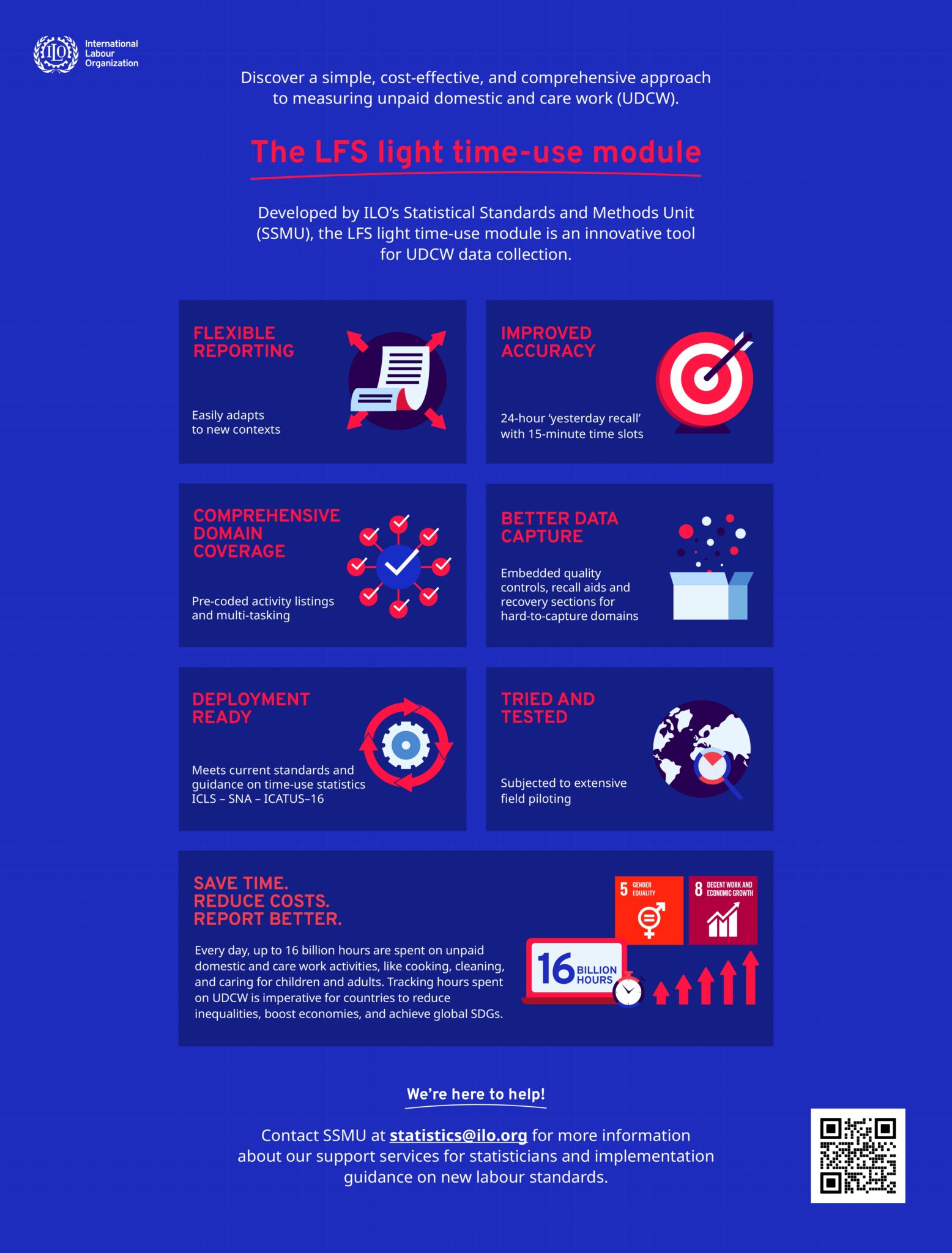
Note on the implementation of statistical standards from the 19th, 20th and 21st ICLS through household surveys
This note provides an overview of the requirements to apply the latest statistical standards through household surveys.

This note provides an overview of the requirements to apply the latest statistical standards through household surveys.

In this blog, we highlight key developments which have greatly enhanced the visibility of women’s work within labour statistics, and the relevance of labour statistics to women’s work, making for a much more complete view of the world of work.
Making labour statistics work for women: recent developments and the way ahead Read More »

These communication materials are designed to support outreach and dissemination on unpaid domestic and care work.
Unpaid Domestic and Care Work Social Media Kit Read More »

This report illustrates Key findings and implications for questionnaire design obtained from the pilot studies carried out by the ILO in Uganda and Peru in relation to the identification of status in employment based on the International Classification of Status in Employment (ICSE-18). Working relationships are inextricably linked to – and have direct implications for – the identification and measurement of informality. Thus, ensuring both are measured well is key to improving our understanding of informality.

This guide provides guidance on implementing the ILO add-on module for own-use provision of services (OPS) in national labour force surveys. It is aimed at low- and middle-income countries and is designed to support NSOs to produce statistics on OPS when resource constraints or other considerations impede an independent time-use survey.
Own-use provision of services: Measurement guide Read More »

A resolution adopted at the 20th ICLS includes a new international classification of status in employment (ICSE-18). This manual describes the revised classification, how it differs from the previous version, and how to implement it in a household survey.
International Classification of Status in Employment (ICSE-18) manual Read More »